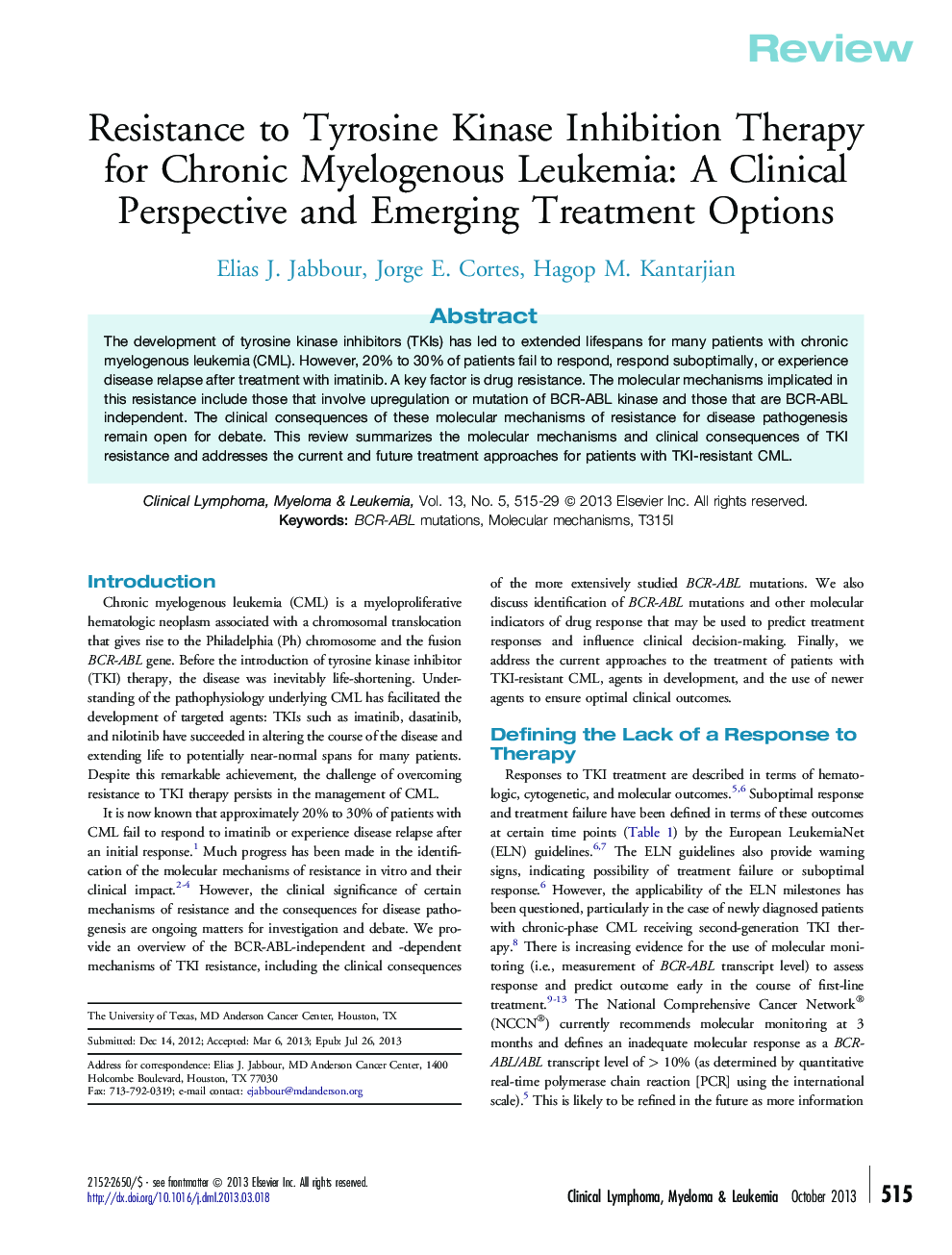| Article ID | Journal | Published Year | Pages | File Type |
|---|---|---|---|---|
| 2754716 | Clinical Lymphoma Myeloma and Leukemia | 2013 | 15 Pages |
The development of tyrosine kinase inhibitors (TKIs) has led to extended lifespans for many patients with chronic myelogenous leukemia (CML). However, 20% to 30% of patients fail to respond, respond suboptimally, or experience disease relapse after treatment with imatinib. A key factor is drug resistance. The molecular mechanisms implicated in this resistance include those that involve upregulation or mutation of BCR-ABL kinase and those that are BCR-ABL independent. The clinical consequences of these molecular mechanisms of resistance for disease pathogenesis remain open for debate. This review summarizes the molecular mechanisms and clinical consequences of TKI resistance and addresses the current and future treatment approaches for patients with TKI-resistant CML.
